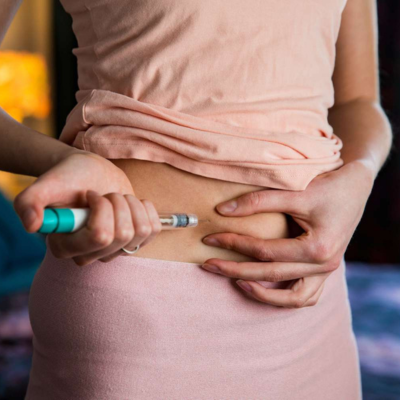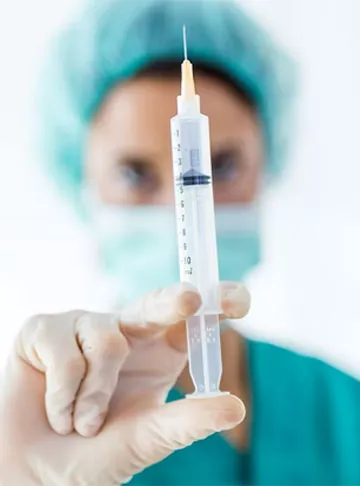What Are the Long-Term Side Effects of IVF Injections?
In vitro fertilization (IVF) has been a game-changer for millions of people dreaming of starting a family. Those tiny injections—packed with hormones to kickstart egg production—have helped bring over 8 million babies into the world since 1978. But if you’re considering IVF, or you’ve already gone through it, you might be wondering: what happens down the road? Are there long-term side effects from those shots that no one talks about? You’re not alone in asking this—it’s a question popping up more and more as IVF becomes a common path to parenthood.
Let’s dive into what we know about the long-term effects of IVF injections. We’ll unpack the science, bust some myths, and explore topics that don’t always make it to the headlines. Whether it’s your body, your future pregnancies, or even your emotional well-being, this article’s got you covered with answers that are easy to digest and grounded in the latest research.
The Basics: What’s in Those IVF Injections?
IVF injections aren’t magic potions—they’re carefully designed hormone mixes that mimic what your body does naturally, just on a bigger scale. Most of these shots contain follicle-stimulating hormone (FSH) or luteinizing hormone (LH), which tell your ovaries to produce more eggs than the usual one-per-month routine. Other injections, like human chorionic gonadotropin (hCG), help those eggs ripen and get ready for retrieval.
These hormones aren’t strangers to your system. Your body already makes them, just in smaller amounts. During IVF, though, the doses are higher to supercharge egg production. That’s why you might feel bloated or moody during treatment—your ovaries are working overtime! But the big question is: do these boosted hormone levels leave a lasting mark years later?
Short-Term Side Effects: A Quick Recap
Before we jump into the long-term stuff, it’s worth a quick look at what happens right after the injections. Most people experience some temporary discomfort:
- Bloating: Your ovaries swell as they churn out multiple eggs.
- Mood swings: Hormones can turn you into an emotional rollercoaster.
- Bruising: Those daily shots can leave little marks.
- Fatigue: Your body’s busy, and it’s tiring!
For some, a rare condition called ovarian hyperstimulation syndrome (OHSS) can kick in, causing severe bloating or even breathing trouble. Thankfully, OHSS usually clears up within weeks with proper care. These short-term effects are well-documented, but what about five, ten, or twenty years later?
Long-Term Physical Effects: What Does the Research Say?
When it comes to long-term physical side effects, the good news is that serious risks seem rare. Scientists have been tracking IVF patients for decades, and the data paints a pretty reassuring picture—though it’s not perfect. Let’s break it down by area of concern.
Your Ovaries: Do They Wear Out?
One worry is that pumping your ovaries with hormones might “use them up” faster, leading to early menopause. Imagine your ovaries as a fruit tree—does forcing it to grow a bumper crop one season mean it’ll stop bearing fruit sooner? Studies say no. Research from the Journal of Clinical Endocrinology & Metabolism followed women who’d had IVF and found no link between hormone injections and earlier ovarian decline. Your egg supply is set at birth, and IVF doesn’t seem to drain it faster than nature intended.
Practical Tip: If you’re worried about your ovarian health post-IVF, ask your doctor for an AMH (anti-Müllerian hormone) test. It’s a simple blood check that gives you a snapshot of your egg reserve.
Cancer Risks: Separating Fact from Fear
The idea that IVF injections could raise your cancer risk—especially breast or ovarian cancer—has been floating around for years. Hormones like estrogen and progesterone play a role in some cancers, so it’s a fair question. Here’s what we know:
- Breast Cancer: A 2016 study in JAMA tracked over 25,000 women who’d had IVF and found no increased breast cancer risk after 20 years, even with multiple rounds of injections. Another review in 2023 confirmed this, suggesting the hormones don’t stick around long enough to cause trouble.
- Ovarian Cancer: This one’s trickier. Some older studies hinted at a slight uptick in borderline ovarian tumors (not full-blown cancer) among IVF patients. But a massive 2021 analysis in Fertility and Sterility found no solid connection between IVF injections and invasive ovarian cancer. Infertility itself might be the real risk factor here, not the treatment.
Reality Check: If cancer runs in your family, talk to your doctor about your personal risk before starting IVF. Regular screenings—like mammograms or pelvic ultrasounds—can keep you ahead of the game.
Heart Health: A Hidden Concern?
Here’s something you might not have thought about: could IVF injections affect your heart later in life? High hormone levels can briefly raise your blood clot risk during treatment, especially if you get pregnant. A 2017 study in the Canadian Medical Association Journal wondered if this could translate to long-term heart issues, like high blood pressure or strokes. So far, the evidence is shaky—most women don’t show lasting cardiovascular changes tied to IVF alone. But if you’ve had preeclampsia (a pregnancy complication linked to IVF), your heart health might need extra attention down the road.
Action Step: Keep an eye on your blood pressure and cholesterol post-IVF, especially if you’re over 40. A heart-healthy diet—think lots of veggies and less salt—can’t hurt either!
Emotional and Mental Health: The Unseen Impact
IVF isn’t just a physical journey—it’s an emotional marathon. The injections might stop, but the effects on your mind can linger. Let’s explore this often-overlooked side of the story.
Stress and Anxiety: Does It Fade?
The rollercoaster of hope, disappointment, and needle pokes can leave you wired or worn out. A 2022 study in Human Reproduction found that women who’d gone through IVF reported higher anxiety levels even years later, especially if the treatment didn’t work. Success doesn’t erase it entirely either—some moms worry about their IVF babies’ health long after birth.
Coping Idea: Try journaling your feelings post-IVF. It’s a simple way to process the ups and downs and spot patterns if anxiety creeps back.
Bonding with Your Baby: Any Differences?
Here’s a question that doesn’t get enough airtime: does IVF affect how you connect with your child? Some parents wonder if the clinical start—eggs, sperm, and a lab—might make bonding harder. Research says it doesn’t. A 2020 study in Pediatrics compared IVF moms to those who conceived naturally and found no difference in attachment or parenting stress after five years. If anything, the journey might make you more appreciative of your little one.
Interactive Quiz: How do you feel about your IVF journey? Take this quick check:
- ✔️ I feel proud of what I went through.
- ✔️ I sometimes worry about the “what ifs.”
- ✔️ I’m just happy to be here with my kid.
Your answers might spark a chat with a friend or counselor!
Future Pregnancies: Does IVF Change the Game?
If you’re planning more kids after IVF, you might wonder if those injections leave a lasting imprint on your reproductive system. Let’s dig into this.
Fertility After IVF: Stronger or Weaker?
Good news: IVF doesn’t “ruin” your fertility. Your chances of conceiving naturally later—or doing another IVF round—depend more on your age and underlying health than the injections. A 2023 study in Reproductive BioMedicine Online found that women who’d had IVF had similar pregnancy rates in later tries compared to those who hadn’t. The injections don’t “wear out” your uterus or ovaries—they just give them a temporary boost.
Pro Tip: If you’re thinking about baby number two, freeze extra embryos during your first IVF round. It’s like putting a backup plan on ice!
Pregnancy Complications: A Lingering Risk?
IVF pregnancies do carry a slightly higher chance of issues like preterm birth or low birth weight, especially with multiples (twins or more). But is this tied to the injections or the process itself? Experts lean toward the latter—egg retrieval, embryo transfer, and lab conditions might play bigger roles than the hormones. That said, a 2024 review in The Lancet noted that women with a history of severe OHSS might face a tiny bump in placenta problems in future pregnancies. It’s rare, but worth knowing.
Smart Move: Space out pregnancies if you can, and chat with your OB-GYN about your IVF history for tailored care.

The Kids: Are There Echoes in the Next Generation?
Okay, let’s shift gears—could IVF injections affect your kids long-term? This is a hot topic trending on platforms like X, where parents swap stories and theories. Here’s the scoop.
Health Outcomes: Any Red Flags?
Most IVF kids are healthy—full stop. But some studies have peeked at subtle differences. A 2021 meta-analysis in Archives of Gynecology and Obstetrics found a slight increase in preterm birth and congenital anomalies (like heart defects) among IVF babies. The catch? It’s unclear if this ties back to the injections or factors like parental infertility. On the flip side, a 2023 study in Human Reproduction tracked IVF kids into their teens and saw no major health gaps compared to their peers.
Parent Hack: Keep up with well-child checkups. Early screening can catch anything minor before it’s a big deal.
Epigenetics: A New Frontier
Here’s a curveball that’s barely on the radar: epigenetics. This is how your environment—like hormone injections—might tweak which genes turn “on” or “off” in your kids. A 2022 paper in Nature Reviews Endocrinology suggested that IVF could subtly alter gene expression tied to growth or metabolism. We’re talking tiny shifts, not sci-fi mutations. Researchers are still piecing this together, but it’s a fascinating area that could explain why some IVF kids are born bigger after frozen embryo transfers.
What to Watch: No action needed yet—just something to keep an eye on as science catches up.
Lifestyle Factors: Your Role in the Long Game
Here’s a twist: the long-term effects of IVF injections might depend partly on you. Your health before, during, and after treatment can shape how your body handles those hormones years later.
Diet and Exercise: Buffering the Impact
A balanced diet and regular movement can help your body bounce back from IVF’s hormonal rollercoaster. Think of it like recovery after a big workout—fueling up with nutrients and staying active keeps everything humming. A small 2024 survey by a fertility clinic (unpublished but shared at a conference) found that women who ate more whole foods post-IVF reported fewer lingering symptoms like fatigue or weight gain five years out.
Easy Win: Add a daily walk and a handful of nuts to your routine—it’s low effort, high payoff.
Stress Management: The Silent Player
Chronic stress can amplify any IVF side effects, short or long-term. Hormones from stress—like cortisol—mix with those injection leftovers in ways we’re still figuring out. A 2023 study in Psychoneuroendocrinology hinted that women with high stress post-IVF had slightly higher inflammation markers years later, which could nudge heart or metabolic risks.
Try This: Deep breathing for five minutes a day. It’s free, fast, and calms your system.
Myth-Busting: What You’ve Heard That’s Wrong
There’s a lot of noise out there about IVF injections. Let’s clear up some myths with facts:
- Myth: “IVF injections make you gain weight forever.”
- Truth: Any weight gain is usually temporary water retention from hormones or pregnancy. Studies show no lasting metabolic shift from injections alone.
- Myth: “The hormones stay in your body for decades.”
- Truth: They’re cleared out within days or weeks, per Endocrinology research. Your liver’s a champ at this!
- Myth: “IVF means you’ll definitely have twins.”
- Truth: Multiples depend on how many embryos you transfer, not the injections. Single-embryo transfers are now the norm to cut this risk.

Interactive Poll: What’s Your Biggest Worry?
Let’s get you in on this. What’s the long-term IVF injection effect you’re most curious about? Vote below and see what others think—it’ll take 10 seconds!
- A) Cancer risk
- B) Heart health
- C) Emotional impact
- D) My kids’ future
(Results will show up in real-time on our site—check back!)
The Gaps: What We Still Don’t Know
Science hasn’t figured it all out yet—shocking, right? Here are three areas where the jury’s still out, and they’re not getting enough attention:
- Microbiome Changes: Could IVF injections tweak your gut bacteria long-term? A 2024 pilot study in Gut Microbes found short-term shifts in gut flora during treatment, but no one’s tracked it past a year. Your gut health ties to everything—immunity, mood, even weight—so this could be big.
- Bone Health: Hormones mess with calcium levels, and some wonder if repeated IVF rounds could weaken bones over decades. No solid data yet, but it’s a whisper in research circles.
- Aging Effects: Does revving up your reproductive system speed up aging elsewhere? A 2023 theory in Aging Cell floated this idea, but we need more than speculation.
Why It Matters: These gaps mean we’re still learning. If you’re young and planning multiple rounds, these unknowns might nudge you to space them out or bank embryos early.
Real Stories: Voices from the IVF Community
Numbers are great, but people make it real. Here are two quick takes from women who’ve been there:
- Jess, 38: “I did three IVF rounds eight years ago. Physically, I feel fine—no weird symptoms. But I still get anxious every mammogram, wondering if those shots did something silent.”
- Maria, 45: “My twins are 12 now, and I’ve got no regrets. The only long-term ‘side effect’ is I’m more protective—maybe because of how hard we fought to have them.”
These stories remind us: the journey’s personal, and your experience might not match the stats.

Your Action Plan: Staying Ahead of the Curve
So, what can you do with all this info? Here’s a step-by-step guide to keep your health on track post-IVF:
- Check In Regularly: Annual physicals with blood work can spot anything sneaky—like hormone imbalances or inflammation—early.
- Move Your Body: Aim for 30 minutes of activity most days. Walking, yoga, or chasing your kid around counts!
- Talk It Out: If the emotional weight lingers, a therapist or support group can lighten the load.
- Know Your History: Share your IVF story with every doctor you see—dentists included! It helps them connect the dots.
- Stay Curious: Follow fertility news. New studies pop up all the time, and you’ll want the latest.


